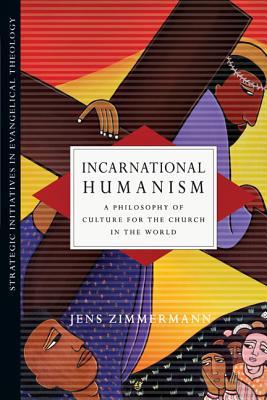
Christianity and humanism have often been portrayed as foes — Christianity being about God and the other-worldly and humanism being about the greatness of human beings. This weighty book explores why this is a false misconception and how the divide being Christianity and humanism has developed.
Jens Zimmermann argues that the basis for Christian humanism is the incarnation of Christ, hence the title Incarnational Humanism: A Philosophy of Culture for the Church in the World (InterVarsity Press, 2012). He goes back to the early church fathers and develops the idea that it is our participation in Christ’s redemptive work that frees us to be mostly truly human as the redeemed image bearers of God, or in Eastern Church terms, as God-like, the idea of theosis. Our participation in Christ, particularly experience in the Eucharist and lived out in the world transforms us to become, in the words of Irenaus, “the glory of God is man fully alive.”
The middle part of the book traces the philosophical underpinnings that led to a loss of this incarnational aspect and the rise of a humanism that divorces faith and reason and results in a God that is an increasingly unknowable Other. Zimmermann then concludes with a call to recover this incarnational humanism, holding up the work of Dietrich Bonhoeffer as exemplary of this theological perspective — particularly his work on the Eucharist and preaching as incarnational.
While I valued the careful scholarly work, which has a monograph quality, I regretted that this is written at a level that probably would discourage most people from tackling the work. It is closely written and assumes familiarity with the history of western philosophy. I also regret that the author did not at least sketch out a bit further the implications of incarnational humanism for the arts and sciences, human commerce and social life. Mark Noll, in Jesus Christ and the Life of the Mind (Eerdmans, 2011), did this in a far shorter work. Nevertheless, this work offers a good defense of a Christian approach to humanism that does not set these two at war with each other.
Bob Trube is a former Associate Director of Faculty Ministry and Director of the Emerging Scholars Network. He blogs on books regularly at bobonbooks.com. He resides in Columbus, Ohio, with Marilyn and enjoys reading, gardening, choral singing, and plein air painting.

Leave a Reply